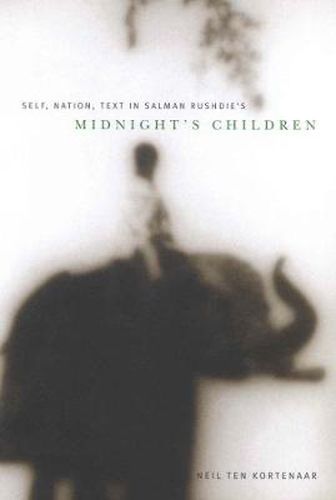Readings Newsletter
Become a Readings Member to make your shopping experience even easier.
Sign in or sign up for free!
You’re not far away from qualifying for FREE standard shipping within Australia
You’ve qualified for FREE standard shipping within Australia
The cart is loading…






Neil ten Kortenaar examines the key critical concepts associated with contemporary postcolonial theory, including hybridity, mimicry, national allegory, and cosmopolitanism, through a close reading of Salman Rushdie’s Midnight’s Children . He offers successive readings of Rushdie’s novel - first as an allegory of history, then as a Bildungsroman and psychological study of the burgeoning of a national consciousness, and, finally, as a representation of the nation. He shows that the hybridity of Rushdie’s fictional India is not created by different elements combining to form a single whole but rather by the relations among the elements: Rushdie’s India is more self-conscious than are communal identities based on language; it is haunted by a dark twin called Pakistan; it is a nation in the way England is a nation, but is imagined against England; it mistrusts the openness of Tagore’s Hindu India; and it is at once cosmopolitan and a particular subjective location. The citizen in turn is imagined in terms of the nation. Saleem Sinai’s heroic identification of himself with the state is beaten out of him until at the end he sees himself as the Common Man at the mercy of the state.
Self, Nation, Text in Salman Rushdie’s Midnight Children explains the many historical and cultural references in a book that makes many demands on non-Indian readers and will be of interest to all who teach postcolonial and postmodern literature and to their students, graduate and undergraduate. Moreover, as an original argument about how nation-states are imagined and how national consciousness is formed in the citizen, it will be of interest to scholars in the area of cultural studies and postcolonial theory, whether in history, literature, cultural studies, or South Asian studies.
$9.00 standard shipping within Australia
FREE standard shipping within Australia for orders over $100.00
Express & International shipping calculated at checkout
Neil ten Kortenaar examines the key critical concepts associated with contemporary postcolonial theory, including hybridity, mimicry, national allegory, and cosmopolitanism, through a close reading of Salman Rushdie’s Midnight’s Children . He offers successive readings of Rushdie’s novel - first as an allegory of history, then as a Bildungsroman and psychological study of the burgeoning of a national consciousness, and, finally, as a representation of the nation. He shows that the hybridity of Rushdie’s fictional India is not created by different elements combining to form a single whole but rather by the relations among the elements: Rushdie’s India is more self-conscious than are communal identities based on language; it is haunted by a dark twin called Pakistan; it is a nation in the way England is a nation, but is imagined against England; it mistrusts the openness of Tagore’s Hindu India; and it is at once cosmopolitan and a particular subjective location. The citizen in turn is imagined in terms of the nation. Saleem Sinai’s heroic identification of himself with the state is beaten out of him until at the end he sees himself as the Common Man at the mercy of the state.
Self, Nation, Text in Salman Rushdie’s Midnight Children explains the many historical and cultural references in a book that makes many demands on non-Indian readers and will be of interest to all who teach postcolonial and postmodern literature and to their students, graduate and undergraduate. Moreover, as an original argument about how nation-states are imagined and how national consciousness is formed in the citizen, it will be of interest to scholars in the area of cultural studies and postcolonial theory, whether in history, literature, cultural studies, or South Asian studies.